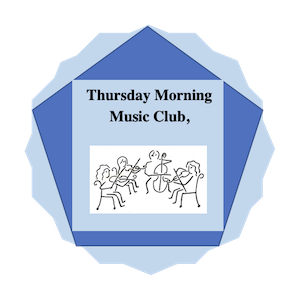Words of Wisdom from my Music Teacher
I started saxophone lessons at the age of 14, in the fall of my sophomore year of high school. My first teacher, Jerry Domer, was one year into a 3-year stint as an oboist and English horn player in the Army Band, which he had joined after obtaining his degree in music. This was a smart personal and professional decision as the Vietnam era was ramping up. There were only 11 years difference in our ages, but from 14 to 25, it's a world of difference. He was talented, degreed, and a working professional, and I was an almost complete musical know-nothing. Two years later he left the Army Band and the Washington, DC, area, and moved to the west coast. I thought about him many times over the years, usually when I open my sax case or played some beginner's exercise. After 50 years I looked for his phone number on the internet and called him up. I didn't expect him to remember me (he didn't), so I felt I had to convince him I had actually been his student by recalling a few of his words of wisdom. Here are a few, with my comments.
"Every note a pearl"
Mr. Domer said that this was what he was told by his own childhood oboe teacher. No matter how many notes there are, each one must be executed beautifully. If you can't do that, it sounds like a mess: you haven't practiced enough and you're trying to just get through the passage, or the whole piece, faster than your ability to play it. As a beginner I always found this advice hard to balance with the other musical notations that applied to multiple notes: crescendo, decrescendo, tempo changes, slurs, staccato, etc. Pearls require you to pay attention to the detail of one note at a time; all the other notations say, "Hey, don't get lost in the details or you won't play with feeling!" Which one do you do? Both. And I've found that all of life is like that, too. We all have themes and lifetime goals, and we also must make each day a beautiful pearl, even if it's just taking out the trash, saying hello to a stranger on the street, or thanking someone for good advice. Even after 50 years.
"Play long tones!”
Mr Domer told me all the time: “Play long tones! They'll help your sound as a woodwind player more than anything else!" Take a big breath and play a note as softly as you possibly can. Gradually increase the volume until you are playing as loud as you can. Then start gradually getting softer, until that note can barely be heard... and stop playing just as you run out of air. Do it again one half step higher, and repeat throughout the entire range of the instrument. Yeah, right. Mr. Domer did not require me to do long tones, but he suggested it. I tried this exercise a few times, and stopped after less than one octave. And boy, was it BOOORING! I was not the greatest music student. Sometimes - due to homework, paper route, and general laziness - I let my practice slide. Once after a few weeks of goofing off, Mr. Domer told me "nicely" that I was wasting my money taking lessons if I didn't take it seriously and practice. I said I would, and looked very contrite, but another week went by with no practice. I came home from school knowing I was dead meat if I showed up to my lesson again sounding like I had done nothing. I was so desperate I practiced just long tones for an hour and a half before my lesson. As soon as I started to play at my lesson, Mr. Domer interrupted me, with a big smile on his face,. "Wow! You sound great! You've really been practicing!" I didn't tell him the whole story until 50 years later. That boring long tone stuff really works!
"Play your instrument, don't let it play you."
I think the alto sax pretty much played me all thru high school and college. I had mostly switched over to playing flute by then, but the sax made an occasional appearance. Then after college it disappeared for 10 years. Meanwhile, I moved from NJ back to DC and took a year of flute lessons. One week my flute teacher asked me if I knew that Jean Pierre Rampal was coming to the Kennedy Center. Yes. Are you going? Yes! Next week she asked if I particularly liked anything he played. The Telemann Sonata in F, I replied. You're ready for that, she said, showing way more confidence in me than I had in myself. Up to that point I had always practiced alone or played in a concert band. In a big band, if you can't play the part, you can often just fake it and let the other players do the work. But you can't hide in a duet or small ensemble. Starting to read and play solo repertoire gave me the reason to really start practicing so I could finally have the confidence to play my instrument instead of letting it play me. Thanks, Mr. Domer - Sorry it took so long!

